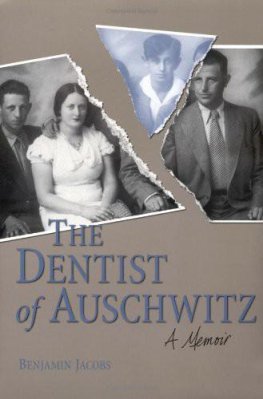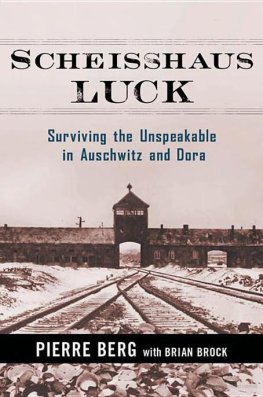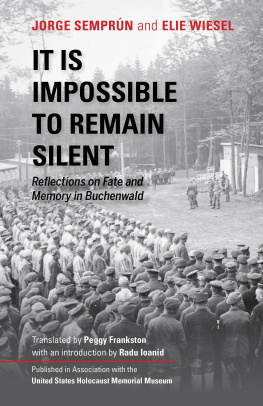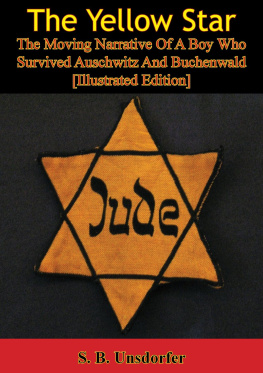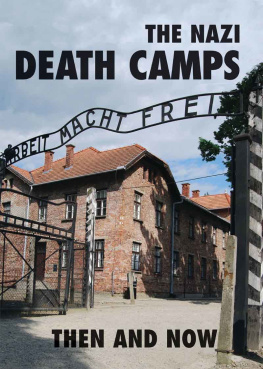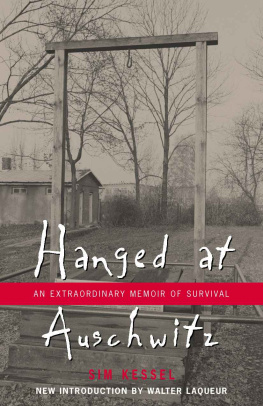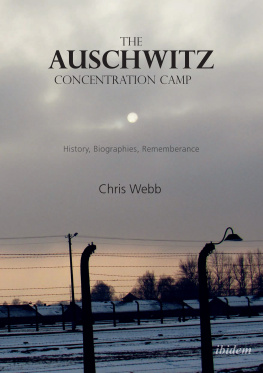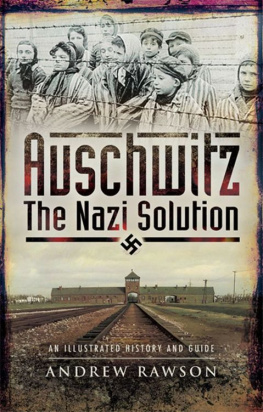From Normandy to Auschwitz
From Normandy to Auschwitz
Paul le Goupil
First published in France in 1991 as
Un Normand dans... Itinraire dune guerre, 19391945 by
ditions Tirsias Michel Reynaud
First published in Great Britain in 2018 by
Pen & Sword Military
an imprint of
Pen & Sword Books Ltd
47 Church Street
Barnsley
South Yorkshire
S70 2AS
English Translation Copyright Francis Yerbury 2018
ISBN 978 1 52672 191 4
eISBN 978 1 52672 192 1
Mobi ISBN 978 1 52672 193 8
The right of Paul le Goupil to be identified as Author of this work has been asserted by him in accordance with the Copyright, Designs and Patents Act 1988.
A CIP catalogue record for this book is
available from the British Library.
All rights reserved. No part of this book may be reproduced or transmitted in any form or by any means, electronic or mechanical including photocopying, recording or by any information storage and retrieval system, without permission from the Publisher in writing.
Pen & Sword Books Limited incorporates the imprints of Atlas, Archaeology, Aviation, Discovery, Family History, Fiction, History, Maritime, Military, Military Classics, Politics, Select, Transport, True Crime, Air World, Frontline Publishing, Leo Cooper, Remember When, Seaforth Publishing, The Praetorian Press, Wharncliffe Local History, Wharncliffe Transport, Wharncliffe True Crime and White Owl.
For a complete list of Pen & Sword titles please contact
PEN & SWORD BOOKS LIMITED
47 Church Street, Barnsley, South Yorkshire, S70 2AS, England
E-mail:
Website: www.pen-and-sword.co.uk
Translators Preface
That which has happened is a warning. To forget it is guilt. It must be continually remembered. It was possible for this to happen, and it remains possible for it to happen again at any minute. Only in knowledge can it be prevented.
Karl Jaspers.
we become aware that to escape from Auschwitz is no small fortune.
Primo Levy
P aul Le Goupils memoir moved me to translate it in its entirety, in the spirit of Jaspers call to the duty of collective memory. I am grateful to the author for many elucidations of his story. We both live in Normandy, the territory marked literally and figuratively by occupation, and the act of liberation from oppression. His resistance is of the unseen kind, that of the Pen against the Sword. Thousands of French men and women silently slipped sand into the cogs of the Nazi machine, often paying with their lives, but their actions deserve the opposite of silence. His complete book covers the years 1939 to 1945, however his participation in resistance began during his first year as a teacher, and he has authorised this brief summary of the early years to better match the editorial remit of Pen and Sword.
Francis Yerbury
Caen la mer
March 2017
The author has indicated certain names by initials only, in order not to prejudice them or their families.
From Carefree to Curfew
W hen church bells tolled in the afternoon of Sunday 3 September 1939, hunting, one of Pauls passions, apart from his accordion and fishing, was postponed and did not resume until September 1945. What happened in between is related here thanks to diaries, notes and his memory, as far as possible. Two generations of his family had already experienced war with Germany, or Prussians as his sharp-tongued great aunt always called them having witnessed them in 1871. His father was a gendarme, but Paul had decided to become a teacher, training at the cole Normale (EN) in Rouen where they lived. There he spent the winter of the phoney war meeting students from other regions with different characters and political views, which gave rise to much debate. They combined studies with light-hearted fun until the catastrophe of the German invasion in May 1940, when he went west as a refugee by bicycle to family in the Cotentin. Narrowly escaping execution at the hands of an overzealous territorial guard he arrived in his relatives rural world and set about being useful in the many farm chores. In due course German troops occupied their land and buildings, and while he worked the farm their occupiers busied themselves practising for the invasion of Britain in rubber boats! He was reunited with his mother and enjoyed fishing, but he was gripped by a sense of loneliness as a refugee and was happy to put his bike on a train back to Rouen.
The centre of the EN building became a shrine to Hitler and classes became dull platforms of Ptainist dogma, which Paul rejected thus his anti-Ptainist end-of-year exam answers obliged him to take a resit. For a break he worked in a summer camp, also run in Ptainst spirit. Discouraged and disgusted, he resat the examinations, towed the line and was admitted to the final year.
Peoples lives in his second year were marked by cold and hunger; they made flour with a coffee grinder! His diary for that year is full of references to shortage of basic food, which he frequently remedied by transporting items. Nevertheless the trainee teachers did manage to organise a blow-out meal before going on practicals which included sport. He emerged fitter, but unaffected by the new doctrine. The lack of food brought with it a downturn in the atmosphere between occupying troops and the population. The slogan The Boche take the lot could be heard in shop queues and tracts began to be handed out. Furthermore isolated attacks on German soldiers and the more frequent train derailments resulted in reprisals, executions, deportations, earlier curfews, bans on cycling, and the closing of theatres and cinemas.
As resistance developed, so did measures against it. One incident shows the conflict resulting from his fathers function as a gendarme: investigating ration card trafficking he was able to identify the person denouncing it. The handwriting of the letter of denunciation was identifiable as that of the notes of Pauls teaching supervisor!
But, with or without the Kommandaturs permission, he managed to travel to visit friends, to ferry food, to attend a wedding, often on his bike, now expensive to maintain, by which means he went to spend September 1942 in the Cotentin before beginning his chosen career.
Chapter 1
Novice Teacher and Novice Resister
I went back to Rouen without difficulty to take up my first teaching post. I had just been allocated to the Jean Jaurs School at Grand Quevilly, a school, comprising twelve classes, located less than ten minutes from my home by bicycle.
According to the established traditions which have not changed, the last one into a school got the job that no one else wanted, which was therefore the least attractive. So they gave me the worst primary infants class. I had to teach reading to kids of ages ranging from 6 to 9 as some had repeated their year more than once. The social background was basically working class, including many Portuguese, and was especially underprivileged. Those children were for the most part undernourished, thin, tired and flea- and tick-ridden. On advice from my colleagues faced with the same scenario, I placed the flea victims and the tic victims on opposite sides of the class. We and the school principal too redoubled our advice to their families and gave out free medication against the scourges, but most of the time we came up against the prejudices of those times. For some parents, ticks were caused by bad wartime bread: it was bread tick. As for fleas, they thought that the flea nest had burst. Some mothers explained to me that everyone has a flea nest on his scalp and that in case of weak health or illness the shell of this nest bursts, allowing the fleas to free range in the hair.


